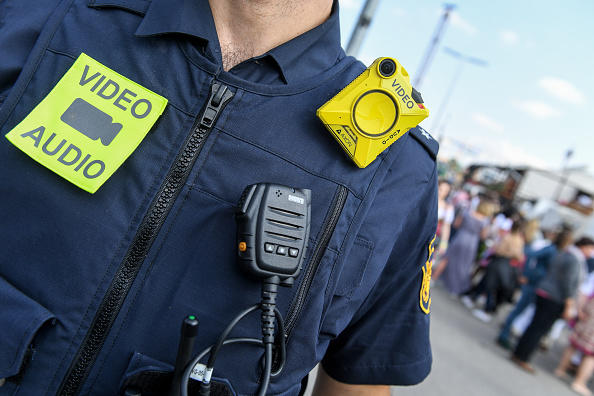Facial recognition technology remains a highly contested issue, with many advocates concerned about how it will exacerbate pre-existing social issues. These concerns are rising once again after the Financial Times reported Axon Enterprise — one of the top body camera suppliers for the police — filed patents for facial recognition technologies.
In 2016 and 2018, Axon filed patents for a video redaction product, as reported by the Financial Times. The product analyzes footage recorded on Axon’s own body cameras in order to find and blur out sensitive information. With that tool, facial recognition would be used to black out faces on a large scale.
The company also filed a patent in 2017 that is still pending approval. According to the Financial Times, that patent is for a real-time video analysis software that would use facial recognition.
Similar to programs like Florida’s Face Analysis Comparison Examination System (FACES), the system would take a picture of someone’s face and search through police databases for a match.
What’s most alarming is that the Financial Times reported that, according to the US patent, Axon claims its technology can guess someone’s race, age, and gender by measuring facial features — including nose length, eye spacing, and more.
The claim is reminiscent of phrenology, a pseudoscience that involved studying the skull and facial features, as noted by researcher Os Keyes. With roots in anti-Black notions of science, phrenology was used to advocate for slavery.
In addition, you can’t determine someone’s gender based on their face. That is yet another example of how facial recognition technologies can harm trans and non-binary people.
A spokesperson for Axon told Investor’s Business Daily that the company is not “actively developing technology that can determine a person’s race, gender and age.” In addition, the spokesperson said the company isn’t developing technology to match faces captured with their body cams to police databases.
“These items are potential uses cases that could be incorporated with the product outlined in the patent. These are not tools that Axon is currently working on,” the spokesperson said.
However, the company did admit to working on facial recognition in a December blog post. That product would be used for identification and tracking.
Facial recognition’s use by law enforcement already has a sketchy history. Even if Axon claims it isn’t working on the technology now, the patents still exist, and it’s likely that the company will pursue the technology in the future.
The Financial Times also reported that Axon will unveil a new AI-powered video analysis at its annual conference in late April.

